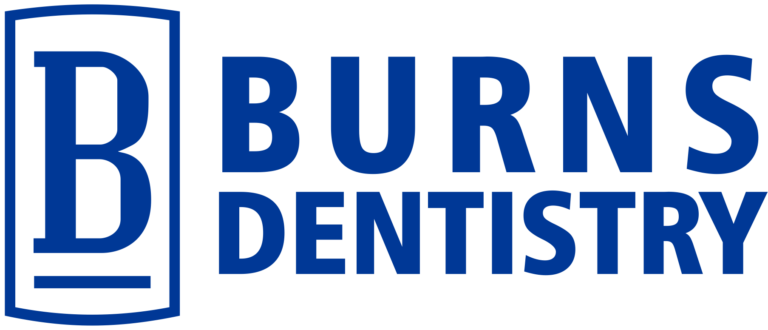Wisdom Teeth in Arizona
Why Should I Have My Wisdom Teeth Removed?
If you do not have enough room in your mouth for your third molars to fully erupt, a number of problems can happen. Impacted wisdom teeth should be removed before their root structure is fully developed. In some patients it is as early as 12 or 13, and in others it may not be until the early twenties. Problems tend to occur with increasing frequency after the age of 30. Some of the possible problems related to not removing your wisdom teeth include:
INFECTION:
The most frequent clinical problem is pericoronitis, (a localized gum infection). Without enough room for total eruption, the gum tissue around the wisdom tooth can become irritated and infected, resulting in recurrent pain, swelling, and problems with chewing and/or swallowing.
DAMAGE TO ADJACENT TEETH:
If there is not enough room to clean around the wisdom tooth, the tooth directly in front, the second molar, can be adversely affected resulting in gum disease, bone loss around the tooth, and/or decay.
CYST FORMATION:
Non-infectious diseases may also arise in association with an impacted wisdom tooth. Cysts are fluid-filled “balloons” inside the jaw bone that develop as a result of impacted teeth and slowly expand destroying adjacent jaw bone and occasionally teeth. They can be very difficult to treat if your wisdom teeth are not removed in your teenage years. Although rare, tumors can be associated with the delayed removal of wisdom teeth.
POSSIBLE CROWDING:
Impacted wisdom teeth may contribute to crowding of your teeth. This is most noticeable with the front teeth, primarily the lower front teeth and is most commonly seen after a patient has had braces. There are a number of factors that cause teeth to crowd after braces or in early adulthood. Retained, impacted wisdom teeth may be a contributing factor. Unless you have an active problem when you see the oral surgeon, the reason for removal is primarily to prevent long-term damage to your teeth, gums and jaw bone.
Wisdom Teeth Removal: What to Expect Before, During, and After Are you about to get your wisdom teeth out? Not sure what to expect? Read on to learn more.
An impacted wisdom tooth can cause serious health issues. It can damage your other teeth, lead to cysts, dry socket, gum disease, and even cysts or benign tumors. If your Sun City dentist has recommended wisdom teeth removal, continue reading. We’ll explain all you need to know on wisdom teeth removal.
Before Wisdom Teeth Removal Surgery
Before your tooth extraction procedure, you will meet with the oral surgeon. At this meeting, you will discuss any questions you have about the tooth extraction surgery and wisdom teeth recovery.
The surgeon will ask you about any medications you take and go over your health history. You’ll discuss the type of anesthesia he or she will use for the tooth extraction surgery. You’ll then schedule an appointment for your wisdom teeth removal.
Some preparations for your surgery can include: Making arrangements for pets, children for the day of your surgery. Booking sick or vacation days at work. If you are in school, making arrangements about assignments ahead of time.
Also, it would be a good idea to arrange for someone to drive you home from your surgery.
During Oral Surgery
Typically, wisdom teeth removal surgeries take around 45 minutes. The tooth extraction is not painful because you will be under the influence of anesthesia. You might be able to choose between general, oral sedation or IV sedation. Or your surgeon will recommend the best option for your procedure. Either way, you will be numb or asleep during the entire wisdom teeth removal process.
Once the medication kicks in, your surgeon will use dental surgical tools to cut your gums to remove the wisdom teeth. The surgeon will stitch the wounds shut so your gums can heal quickly. These stitches dissolve on their own after a few days. So you won’t need to come back to have your stitches removed. Once the surgeon sews your gums, he or she may line your gum line with gauze to soak up any blood. The medical team will then reduce the medication so you can become alert again.
Aftercare on the Day of Your Surgery
You will feel a little groggy after your tooth extraction surgery. You can expect some swelling and pain around the extraction site, and a little blood in your mouth. Your doctor will advise you on how to treat the pain. It could be with prescription painkillers, an ice pack, or over-the-counter medicine. Once you feel ready, you will be able to go home. You can’t drive for a certain amount of time after general anesthesia so you will need a ride home. For the rest of the day, you will need to take it easy. You will probably spend the rest of the day sleeping or resting on your bed or a couch.
Wisdom Teeth Recovery
You must take care of your mouth when you get home to avoid infection or any complications. Follow the instructions of your surgeon exactly. Likely, your surgeon will advise you not to brush your teeth, rinse your mouth or floss for 24 hours. He or she might tell you to rinse your mouth with salt water. If so, do not spit. Just let the water trickle out of your mouth into the sink. The dentist will give you lots of gauzes to take home. You can change your gauze as often as you need. The gauze will absorb excess blood. You should be able to resume your regular activities two or three days after wisdom teeth removal.
What to Eat After Wisdom Teeth Removal
You can eat right away after your wisdom teeth removal. But you might not have much of an appetite right after your tooth extractions. For the first few days of wisdom teeth recovery, you should eat soft foods that don’t require you to chew. You will need to be careful not to disrupt your stitches when eating. Start with soft foods such as pudding, applesauce, broth, smoothies, mashed potatoes, ice cream, and milkshakes. Remember, staying well hydrated is crucial for your recovery. Make sure you avoid eating foods that are very hot. These could burn your tender gums at the site of the tooth extractions. Also don’t eat any nuts, seeds or hard, solid foods that can get stuck in the holes where your wisdom teeth were. Do not drink from a straw as this can dislodge your newly formed blood clots. Slowly begin eating heartier food as you feel up to it.
Making a Full Recovery
Most people fully recover from your wisdom teeth removal after around three or four days. But, if you had an impacted wisdom tooth, your recovery could be as long as a week. Yet, the pain and swelling should be much improved by the third day.
Though your surgical wounds will take months to fully heal, you should be able to resume normal activities after a day or so. You should avoid smoking, heavy exercise, drinking from a straw for a while yet.
You can develop an infection even weeks or months after wisdom tooth removal. Make sure to make your oral hygiene a top priority.
If you develop excessive bleeding, unbearable pain, fever, more and more swelling, numbness or blood or pus coming out of your nose, contact your doctor immediately. Complications such as these could mean you have nerve damage or an infection.
Frequently Asked Questions:
WHAT IF I DON’T HAVE MY WISDOM
TEETH REMOVED AS A TEENAGER OR YOUNG ADULT?
As wisdom teeth develop, the roots become longer and the jaw bone more dense. When it is necessary to remove impacted wisdom teeth in your thirties, forties or beyond, the post-operative course can be prolonged and there is a higher complication rate. Treating these complications is often more difficult and less predictable than with a younger patient. Healing may be slower and the chance of infection can be increased. If your impacted wisdom teeth are not removed in your teenage years or early in your twenties and they are completely impacted in bone, it may be advisable to wait until a localized problem (such as cyst formation or localized gum disease and bone loss) develops. In general, you will heal faster, more predictably and have fewer complications if treated in your teens or early twenties.
WHAT DOES WISDOM TOOTH REMOVAL COST AND
IS IT COVERED BY INSURANCE?
The cost of your treatment is determined by a number of factors. These may include the difficulty involved in removing your teeth and which type of anesthesia is best for you. During your consultation appointment, the surgeon will need to review your x-rays, complete an examination and determine the best option for anesthesia, before an accurate estimate can be provided. Every insurance company has a different policy regarding the extent of coverage for a given surgical procedure. The oral surgeon’s office staff will help you obtain maximum insurance coverage for your treatment.

